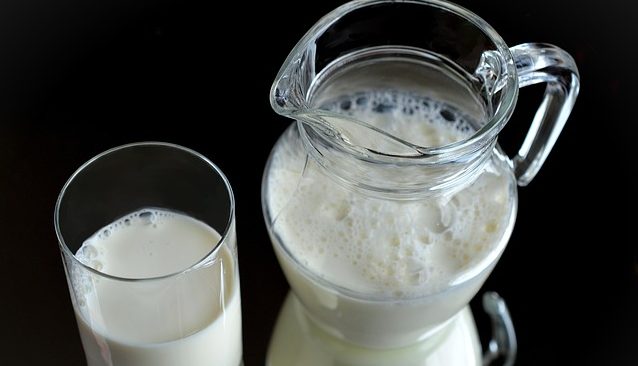
Karina writes: “I am a fan of low-fat dairy. I prefer skimmed milk and fat-free yoghurt. But lately, people have been telling me that low-fat dairy is “bad for you ” and full fat is better. When I ask why, they say it’s something to do with how the fat is removed. Another person says most of the nutrients are in the fat. What is your take on it?”
For years, health experts told people to avoid full fat dairy products and choose low or nonfat instead. Now, an increasing amount of evidence suggests that consuming full fat dairy does not increase the risk of heart disease or weight gain (as once feared).
But just because full-fat dairy is now considered “good” for you, it doesn’t follow that reduced-fat dairy must be “bad” for you. Adults who dislike the flavor of low-fat dairy can enjoy full-fat with a clear conscience. But if you prefer the low-fat stuff, I don’t see any reason why you can’t continue to enjoy it.
Homogenization and other unfounded fears
The way fat is removed from the milk is pretty low tech. It’s simply skimmed from the top or spun out in a centrifuge. Nothing to worry about there. Your friends may be thinking of the homogenization process, in which the fat is broken up into smaller droplets so that it stays suspended in the milk instead of rising to the top.
Although there were once fears about the dangers of homogenization in some circles, these have been put to rest by subsequent research. But even if those rumors had panned out, the alleged danger would be in drinking whole milk, not skim, which is not homogenized.
Where are the nutrients?
As for most of the nutrients being in the fat, you actually get slightly more protein and calcium from 8 ounces of skim milk than you do from 8 ounces of whole milk. Full fat milk does contain small amounts of conjugated linoleic acid, though, which you wouldn’t get from skim milk.
Vitamin A & D are two fat soluble vitamins that are often added to milk here in the U.S., but the levels of A & D are the same in fat-free and whole milk, because they are added after the fat is skimmed. And research shows that your body absorbs these nutrients just fine, even from skim milk. Apparently even a small amount of fat from other foods is enough to escort them safely across the intestinal border.
Hope that clears up any concerns (except, of course, about the reliability of your friends’ nutrition advice).

Hi Monica,
The above is applicable to CHEESE as well?
Thanks and regards.
Reduced fat cheese may simply be cheese made with reduced fat milk, in which case the above observations would hold true. (Cheese may not be fortified with vitamins A and D however, so that part would be moot.)
However, some reduced fat cheese products have a lot of extra ingredients added to improve the texture and flavor. In that case, you’d have to take into account the pros and cons of all those extra ingredients and processing.
Thank you:)
In regards to full fat dairy, is there data to support that grass fed dairy has a healthier nutrient profile as compared to conventionally produced (confined dairy cattle not permitted to graze on pasture)?
There is data to show that grass-fed meat and milk have higher levels of certain nutrients, including beta-carotene and omega-3 fatty acids, than grain fed. Nonetheless, the amount of omega-3 or beta-carotene you’d get from grass fed milk is still quite small. So the question isn’t whether or not there’s a difference. It’s whether or not the difference has any measurable impact on our health our nutrition. And there isn’t any data to support that it does.
Thank you for the perspective.
But cows are meant to eat grass, not grains. Grain-fed cows aren’t healthy cows so you might want to take that into consideration. CAFOs are awful as well.
I find myself referencing your website at least once every few weeks to find the answer to some food-related question. Your level-headed, fact-based approach is so refreshing amidst all the trends and fad diets. Truly awesome work.
Milk is OK but I prefer soured milk that only the countries with a well developed dairy industri got. Youghurt is not the same. I don’t eat butter, creme freche, very little cream, not fat cheese, or low fat cheese.
I’ve been drinking the Horizon Organic Organic whole Milk, which has no hormones, it’s non-GMO, and has no antibiotics in it. I figure that if I’m going to drink the whole milk, I’ll have fewer deserts.
I’ve also read/heard that whole milk is the real deal, as well.